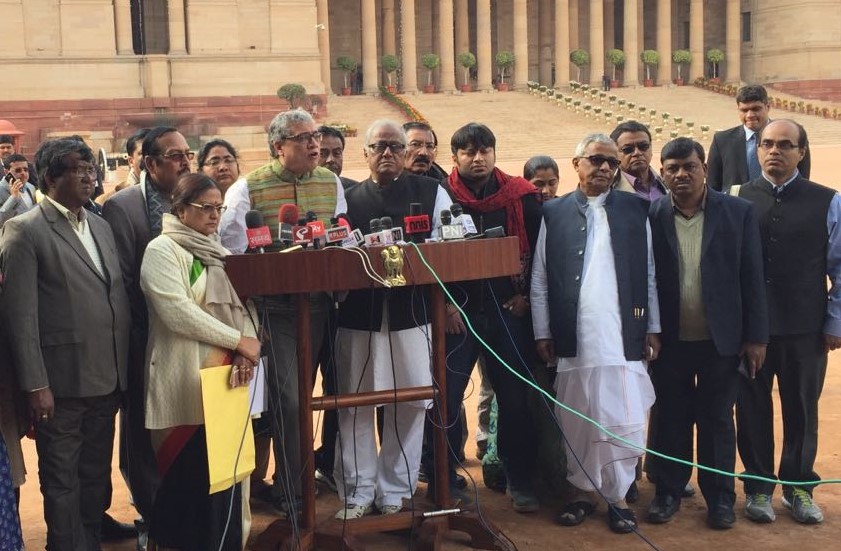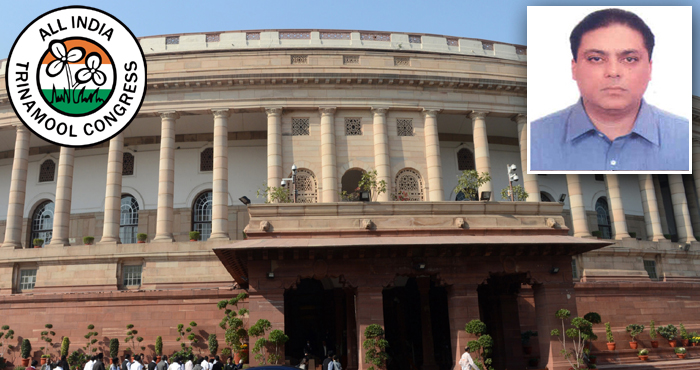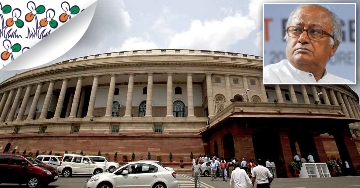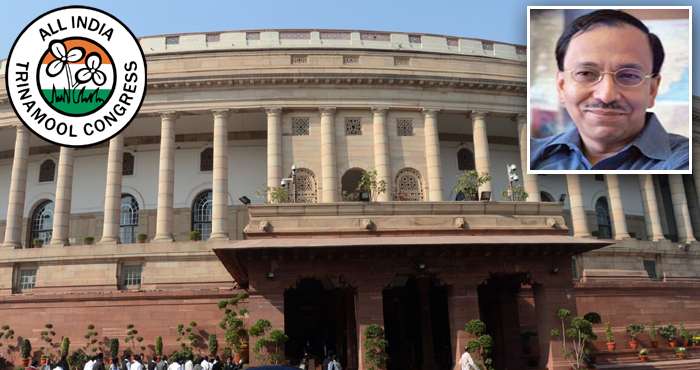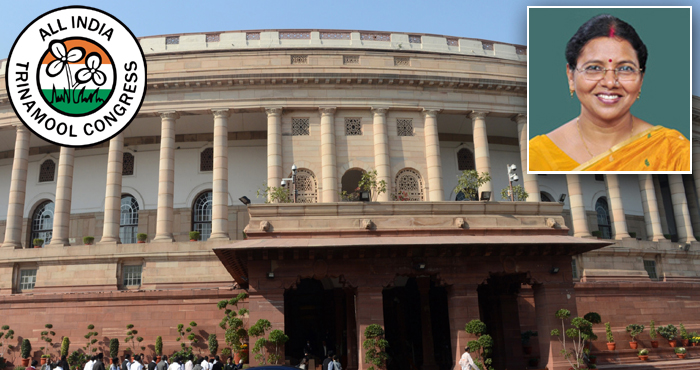Meeting the President for the third time since demonetisation, Trinamool Congress (TMC) MPs accused the Modi government of having imposed a “super emergency” by launching the exercise and engaging in “vendetta politics” by arresting two party lawmakers after it opposed the “draconian” move.
Speaking to reporters after marching from South Avenue to Rashtrapati Bhawan to protest against the note ban, the MPs also held Prime Minister Narendra Modi responsible for the death of 120 people, caused allegedly by the move, and sought President Pranab Mukherjee’s intervention as the situation had turned “grim”.
The 30-member delegation, comprising MPs Sukhendu Shekhar Roy, Dola Sen, Dinesh Trivedi, Arpita Ghosh, Kakoli Ghosh Dastidar, Sisir Adhikari among others, also submitted a memorandum to Mukherjee.
Memorandum to the President
Hon’ble Rashtrapati ji,
Six days after announcing demonetisation on 8 November 2016, the Prime Minister had asked for fifty days to meet the objectives of demonetisation and end the suffering caused to ordinary citizens. The people of this country have now borne this acute crisis for over sixty days and the situation has only got progressively worse.
120 lives have reportedly been lost because of demonetisation. We are deeply pained that this Government has not as much as acknowledged the loss of these innocent lives. The brunt of these irresponsible measures is being borne by India’s least fortunate and most honourable people – farmers, textile, construction and plantation workers, small business owners, trading communities, fishermen, housewives, students and large sections of the middle class.
In spite of a good monsoon, farmers were prevented from purchasing seeds and necessary inputs at the peak of the rabi sowing season. Food shortages and rural distress are looming large on the horizon. Everyday we are witnessing cash-starved farmers making distress sales or even throwing away perishable produce.
As you are aware, only 7% of India’s workforce is employed in the organized sector. Demonetisation has impoverished a vast majority of the 415 million workers who earn a daily wage through agriculture, construction, small-scale manufacturing and retail. Over 25 crores daily-wage workers have suffered loss of work. Micro and small-scale industries are reporting 35% job losses and 50% decline in revenue. As factories have shut, workers are returning to their villages in an unprecedented reverse migration. If restrictions on cash withdrawal are not removed immediately, job losses will increase manifold in the coming months.
We find it alarming that people’s right to withdraw their own money has been suspended indefinitely. Despite repeated requests, the Government has shared no timeline for the removal of restrictions on cash withdrawals. As the restrictions continue to be in effect, honest and upright citizens of this country are being prohibited from accessing their hard-earned money. Propriety demands that the Government explain under which provisions of law these restrictions on withdrawals have been imposed.
From the day of the draconian announcement of demonetisation and throughout this ill-conceived and poorly implemented exercise, this Government has served to deceive and ambush its own citizens. New and inconsistent notifications have been issued almost everyday, withdrawal limits and deposit deadlines altered with no prior notice, and financial incentives for digital transactions roll-backed at whim. Arbitrary and irresponsible conduct of this nature has shaken the people’s trust in the government irrevocably.
It is appalling that this Government has resorted to the politics of vendetta to conceal its own incompetence and inefficiency. Anyone who has opposed demonetisation has been branded anti-national, corrupt, a supporter of terrorism or a hoarder of black money. The Government is blatantly misusing power and using state agencies to stifle opposition and silence critics. This deplorable and vindictive politics dishonours the sacred principles of our constitutional democracy and is detrimental to national interest.
Sir, as the custodian of the Constitution of our country, we appeal to you to intervene to take care of our people and save them from harm. We look to you, Sir, to bring an end to this unprecedented super-emergency.
With regards.
Yours truly,
<Signed by Trinamool MPs>

